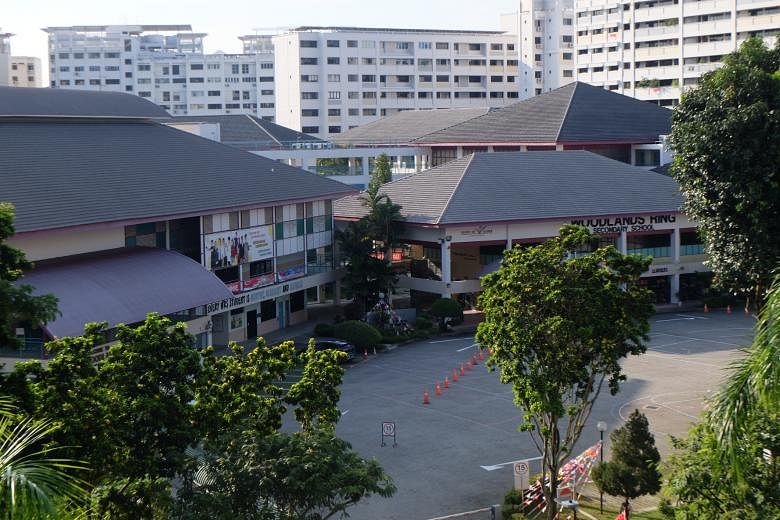SINGAPORE - Woodlands Ring Secondary School students who come from low-income homes are getting extra help developing skills that will help prepare them for life outside the classroom.
A pilot called Mindblown will expose students to school leadership roles and allow teachers and parents to provide targeted interventions for at-risk students.
The initiative, which kicked off in the school in February, is a result of a tie-up between Care Corner and Woodlands Ring Secondary.
It is designed to help students build core lifelong skills that will help them attain their educational goals and improve social skills.
These were just some of the strategies and initiatives that came up for discussion on Monday (Nov 15) at the hybrid conference commemorating Care Corner Singapore's 40th anniversary.
Participants, including doctors, social workers and educators, touched on a wide range of topics that spanned education, mental health and geriatrics.
Madam Komathi Kesavan, vice-principal of Woodlands Ring Secondary, said the Mindblown scheme is critical for students who missed out on developing key life skills at an earlier age.
She said: "Research shows that most of the development in children can happen up to about seven years old, but there is another window of opportunity at about age 12 and 13.
"Some kids may not have had the right conditions to develop these skills at the first phase, so this is just another opportunity for them to work on these skills."
Madam Kesavan added that if the pilot programme is successful, it could be rolled out in other schools.
Care Corner chief executive Yap Poh Kheng said Mindblown is an example of innovative and collaborative approaches that produce fresh solutions to tackle social problems.
He added: "We have collaborated across sectors in a way that we can address the issue and its root causes early.
"It is essential for social agencies like Care Corner, and many others to transform ourselves and to evolve to meet these changing needs."
Participants at the conference also discussed efforts to help children with learning difficulties do better using innovative methods.
For instance, the KidsBright scheme targets children with specific learning difficulties such as attention deficit hyperactivity disorder (ADHD), dyslexia, autism, and developmental delays.
It offers a medication-free strategy that combines mental, movement and dietary approaches designed to enhance the neuro-developmental, learning and academic abilities of these children, said Mr Issac Tan, clinical director of Care Corner's Educational Therapy Service.
"The conventional interventions, though they are effective, still have a lot of limitations," he added, highlighting the concerns of parents over the side effects of the medications administered.
Mr Tan said this was why he and his colleagues looked for alternative treatment methods for these children.
A programme evaluation by the National Council of Social Service and Care Corner three years ago found that children enrolled in KidsBright showed significant improvements in their average abilities for reading, spelling, handwriting, verbal skill, concentration and the ability to sit still, among other things.
A Care Corner spokesman said: "The evidence further suggests that KidsBright may be considered an effective, medication-free alternative to help children with ADHD learn better."


